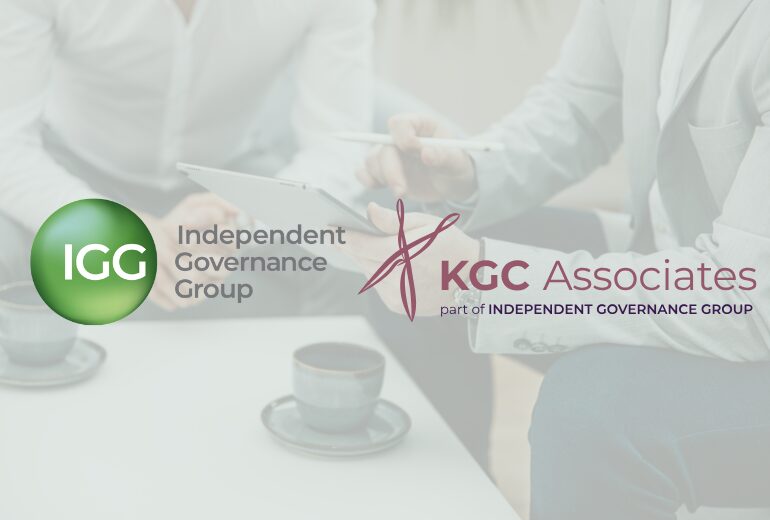As we settle into the quieter days of winter, it's the perfect time to curl up with a good book – whether you're by the fire, on a festive break, or simply enjoying some downtime before the year ahead. From thought-provoking non-fiction to brilliant storytelling, here's what the ECI team are reading this winter:

Neal Griffith
In Search of Thursday by Paul Traynor
This book, recommended to me by a former 3i employee, is about the early days of 3i and how it became a ‘University of Venture Capital’ for many in the private equity industry who went on to spin off their own firms. It follows Paul’s experience joining the VC world at the age of 25, and is part insightful, part incredibly amusing. It obviously interested me as I work in the industry, but the stories Paul tells and his style of writing make it far more laugh out loud than you might expect… One word of warning – some of these stories are not exactly appropriate so don’t take this review as endorsement. And for those considering joining the world of private equity now, if you read this I must stress that things are quite different now versus in the 1980s….. most things at least!

Louis Jans
Fourth Protocol by Frederick Forsyth
As ECI’s resident spy / secret agent book critic, I found myself looking for my next read. Thanks to ChatGPT I was introduced to Frederick Forsyth’s (also authored “The Day of the Jackal”) Fourth Protocol. Set during the 1987 UK general election where a hard-left faction is gaining popularity, Russian spies hatch a bold plan to discredit the Conservative government by deploying a next generation weapon on UK soil. The book follows the main actors from both the UK and Soviet side but it takes quite a while before both storylines converge, which makes it a very thrilling read and hard to put down. The story is a really nice blend between fiction and reality, grounded within real events and personas, so feels very realistic.

Fiona Moore
Not the End of the World by Hannah Ritchie
At times it can be quite doom and gloom working in ESG: ever closer critical deadlines, failures to miss targets, watering down, greenwashing, species wipe outs… the list goes on. Hannah Ritchie is a lead researcher at Our World in Data, and she wrote the book to combat that feeling of helplessness and doom and gloom. Rather than follow the headlines and the dramatic crisis calls, she zooms out and takes a look at the long term data to understand where we should focus our efforts and where we’ve already past monumental peaks. She challenges preconceptions around sustainability and calls out activities that might ‘feel’ good on the progress front but that aren’t really moving the needle. I finished the book feeling optimistic, not just about the steps forwards that we can take but also about how much has already been achieved.

Isa Maidan
Headshot by Rita Bullwinkel
Headshot is a debut novel following eight girl boxers in the US over the two days of a championship. The reason this stood out to me is compared to anything else I’ve read, is it had an incredibly unique structure, with each chapter dedicated to one of the bouts in the tournament. This way of presenting the narrative gives a real feel of intimacy to the competition. The author cleverly weaves the girls’ pasts and futures into the fights, what’s driving them and how their upbring affects their approach in the ring. As the reader you get to know and start rooting for each of them. The characters can be raw and messy – many have got into fighting for very real and often painful reasons. This rawness is reflected in the writing style which takes you into the ring with them, with all the intensity, heat and pain of each fight.

Toby Fitzherbert
Operation Mincemeat by Ben Macintyre
There seems to be a cultural moment of this story recently, with both a musical and a Colin Firth film about it in the last five years. This isn’t surprising as it is a story that is so fantastical it is hard to believe it all happened. The book follows the planned deception of German troops convincing them that the planned invasion of Sicily was in fact a hoax. Doing so probably saved thousands of lives, but the way it was done reads like the fabrication of a thriller writer. I really enjoyed discovering the story, and won’t spoil it for people, but if you did want any Christmas gift ideas, this is one of those books you read and immediately start gifting to people you know!
Insights
09/12/2025
What are ECI reading? Our winter 2025 reading list

ECI believes that the next 12 months will see renewed deal momentum in the hunt for DPI
- UK remains a strong environment for entrepreneurial businesses.
- Dry powder plus a ‘flight to quality’ means top-performing companies will see a boost in valuations
- European mid-market attractive in the hunt for DPI and Alpha
- As 2020/21 vintages hit five-year hold periods - expect more exits, but with tighter processes
- Revenue visibility and AI become the defining themes for 2026
Following a quieter than usual 2025 for the UK PE market, we still believe the UK continues to be a good environment for entrepreneurs and predict that 2026 will see more deals, but with a flight to quality and a more nuanced approach to processes.
UK - a fertile environment for entrepreneurialism
Managing Partner of ECI Partners, Tom Wrenn, comments:
“Uncertainty before the Budget prompted international LP questions, but over the last 12 months, the UK is only behind North America in GDP growth, and the business environment is positive, with a thriving digital economy and good levels of company formation. The 24% capital gains tax regime and 47% combined top rate of income tax and NI for highly paid employees present an environment that encourages entrepreneurialism. The proof is in the fact that the UK represents around 25% of European M&A volumes.”
In this market, the most successful investors will be those with a consistent model of identifying resilient outperformers, and having the right value-add capabilities to help them deliver growth. Tom adds, “The best investors will have a long track record of delivering strong results over multiple economic cycles. Returns are not reliant solely on GDP growth, and at ECI we’re investing in niches that are growing well ahead of GDP because of structural growth drivers.”
Fundraising and the great wait for exits
Elongated fundraising timelines will likely continue into 2026, with DPI still the most important metric in the market. Tom comments, “We’re seeing a pivot from both the large-cap to the mid-cap and from the US to Europe, as LPs search for DPI and Alpha. However, LPs are being more selective, and commitments may be smaller owing to the shortage in returning liquidity. Funds with a focussed portfolio and strong DPI will be the ones most likely to attract that LP capital.”
We expect a more active 2026 as 2020/21 vintages hit five-year hold periods, and GPs sitting on assets need to deliver liquidity. At ECI, the average hold period is under five years, versus the average of 5.3 years in the UK, according to gain.pro. Tom comments: “PE firms are building up big portfolios that they need to start exiting. 2020-21 was the high watermark, where PE companies paid big prices, hence it’s difficult for them to exit those businesses when they haven't yet generated their returns. Next year, we should start to see some of those businesses coming to market.”
Tom predicts there will still be a flight to quality: “We have a bifurcated market with the haves and have-nots. Capital is plentiful, but only the top 10% of businesses are attracting competitive interest. Funds without strong origination or sector expertise will find deployment increasingly difficult, as exit processes are likely to be tighter, testing the market with more bilateral conversations versus big processes.”
Value creation and AI: the defining themes for 2026
We believe revenue visibility and non-discretionary demand will be critical differentiators in 2026. ECI has a long-standing value-creation model and its ability to work closely with management teams across its 14-company portfolio. With the advent of generative AI, we believe this will be more important than ever, with a divergence between portfolios that are impacted by AI as an existential threat and those that use it as a driver for outperformance.
Tom states: “We were the first mid-market UK PE firm with a distinct value creation team, founded in 2008, and for the last 17 years we've evolved through multiple cycles and macro events. AI is the newest part of that evolution and we're excited about the opportunities AI is bringing to help drive growth in our portfolio companies. It is a key driver of efficiency and competitive advantage and will become a fundamental performance indicator. It can materially improve cost bases and unlock capacity for innovation. The best companies will be those whose management teams lean into AI rather than waiting for clarity.”
He adds that our own use of generative AI, including ECI's Amplifind™ platform, is already improving early-stage evaluation and strengthening its niche sub-sector focus.
Tom concludes: “For ECI, 2026 will be defined by quality, selectivity and smarter growth. We’re confident that the UK mid-market is well placed for a stronger year of investing and value creation.”
Insights
09/12/2025
Read Time: Min
Our 2026 private equity market outlook

1. Why the threat landscape keeps CEOs awake at night
The biggest challenge facing companies now is that cyber attackers are constantly innovating. Protection is a moving target that is high risk and poses a genuine value threat to your company.
Expanding attack surfaces add further complexity: cloud, remote work and complex supply chains, are creating more opportunities for disruption. AI is a significant growth opportunity, but it opens up new governance requirements and exposes companies to more risk of data leakages. As high-profile breaches (e.g. JLR, M&S and Co-op) are front of mind, the idea that they could be next is what keeps CEOs up at night, with many CISOs admitting their firms are unprepared for the current rate of pace of attack change.
2. Detection, response, and automation: Winning the speed race
Given this pace of change, what do you need in your organisation to stay ahead of the threat?
- Advanced threat detection (XDR, 24/7 monitoring) is critical to spot attacks early
- Automation (SOAR, AI/ML) reduces alert fatigue and enables rapid, consistent response
- Playbooks created ahead of time means avoiding time-wasting decisions when speed is critical
If you don’t detect an attack fast, and if you don’t have a response plan in place, incidents can spiral into a crisis that puts the whole company at risk.
3. Cyber as a value driver: Turning security into growth
How do we see this as an investor? It is clear that strong security is now a differentiator, not just a cost centre. Cyber-native companies can demonstrate value protection procedures, but more importantly, they have a greater opportunity to access regulated markets and command premium pricing. This is also now priced in - robust posture can add 5-25% to valuations and, importantly, means management teams can crack on with growth plans straight away post-deal, rather than trying to shore up security.
4. Compliance, culture, and the CEO’s role
With these changes to threat level, combined with regulatory pressure such as GDPR and sector-specific rules, the importance within businesses is growing. Cyber and data compliance is a Board-level item, and from there, security culture must be embedded across the business.
CEOs must lead from the front: proactive, embedded security beats reactive fixes every time.
Insights
04/12/2025
Ash Patel
Read Time: Min
How will today’s cyber landscape shape tomorrow’s winners?

At ECI we've supported our portfolio to make over 80 acquisitions. So what are some of the top lessons we've seen over that time? Investment Director, Skyler ver Bruggen, and North American Growth Specialist, Brett Pentz, share their tips for what you need to make a success of M&A:
1. Clearly defined strategy
Working on deals can be time-consuming and uncertain, so having a clearly defined strategy from the outset is vital. Management teams, and subsequently Boards, need to have open and honest conversations to be completely aligned about direction, sources of growth, and execution considerations.
2. Relationships
The most important factor in any deal (and a primary objective!) is to become a seller's favourite destination for their sale. Meet people face-to-face (especially important for UK buyers to be considered by US sellers), be honest and communicate how much you admire their business. Demonstrating patience and listening to understand seller motivations is important in building that connection as well. The stronger the relationship you build, the higher the likelihood that a deal can be made off market.
3. Keep the Board updated
Be sure to communicate progress at board meetings and key updates in between. Ensure the team is up-to-speed on progress, challenges, and responses to their questions to avoid any surprises – a standard M&A page in the board pack is recommended..
4. Identifying resource levels
Narrowing down and qualifying targets is a big resource burden, which can be amplified depending on your strategy. Is it one or two deals, or a full-on M&A strategy of 15 or 20 deals? If it’s the latter, you’ll need full-time resource. If the strategy is more limited in scope, identifying trusted advisors you can work with is critical. Carve out chunks of their time, schedule regular updates, and most importantly, hold each other accountable.

Skyler ver Bruggen, Investment Director and Brett Pentz, North America Growth Specialist
5. Strategic outreach
One tactical consideration is how you build salience when reaching out to potential opportunities, so you get a response and quickly qualify them. Success can often be found on the back of industry conferences, especially those where you’ve had an active presence – it’s a great way to bump into potential targets or build recognition so that your next message stands out in someone’s inbox.
6. Earn-outs
Structure them carefully, depending on the nature of the industry and the behaviour you want to drive. Earn-outs can work well in a recurring revenue model, where customer based revenue is stable and you are in control of the cost base (to avoid over investment that pushes down EBITDA to drive revenue). However, where revenue is more uncertain, or one-off, there’s the potential for a seller to drive low-quality, unrepeated revenue to hit the earn-out. If the acquisition is competing for the same customers as the buyer, earn-outs should be avoided.
7. Integration
A huge topic in itself, and getting it right is obviously paramount. Broadly it can be split into three buckets:
- Onboarding: define legals, financial reporting, cash management, etc.
- Systems and data: specify, choose and optimise a set of systems for running the business (i.e. Salesforce, HubSpot, Tableau) and develop a methodology for rolling these out. It doesn’t need to be in place from day one, but a clear time frame and plan is essential.
- Platform: Don’t underestimate how big platform integration and migration are, as it can take years to get right. Good integration is all about good people and requires dedicated project management. Be clear about tranches, responsibilities, timings and ownership.
8. Winning hearts and minds
Any acquisition is a time of worry and instability for employees. Spend time with the team at all levels and present an overview of what the new parent company can do for them. Outline the high-level opportunity, the potential career progression and the stability it provides. Clear communication may seem like a small task, but it’s worth taking the time to make sure you get it right.
This article was created off the back of an ECI Unlocked webinar. You can listen to the whole webinar here.
Insights
27/11/2025
How to get the most out of M&A

Independent Governance Group (IGG), the UK’s leading provider of professional pensions trusteeship and governance services, today announces the acquisition of pensions consultancy KGC Associates, further strengthening its governance offering.
With extensive experience spanning more than two decades, KGC provides independent evaluation and operational governance services including benchmarking, market review, operational governance and management consulting to a range of pension schemes. The firm has a strong reputation as a trusted leader in objective analysis and practical insight.
KGC’s services are well complemented by IGG’s trustee and governance expertise. The acquisition further enhances IGG’s capability to deliver end-to-end solutions that achieve good governance and optimal outcomes for members, an area where demand from employers and scheme trustees remains strong.
The KGC team will all retain their positions under IGG’s ownership. Kim Gubler, Managing Director, and Lesley Carline, Director, will continue with their client facing roles, with Hayley Mudge maintaining her leadership of the business’s research function as Head of Research.
The move follows two recent senior hires for IGG: Hatty Goodwin, who joined in September as Trustee Director and Head of Risk Transfer, and Jeremy Petty, who joined in October as Director to lead IGG’s creative communications and employee engagement agency, like minds. These are succeeding our investment in October 2024, to support organic and acquisitive growth. The Group will continue to evaluate complementary acquisition opportunities to accelerate its successful organic growth strategy and further deepen its talent pool.
Andrew Bradshaw, CEO of IGG, comments: “I am very pleased to welcome Kim, Lesley and Hayley to the IGG group. The first-class reputation they have built within the industry is based on deep expertise, while their focus on independent evaluation and operational governance services is a natural fit for our existing offering. Bringing KGC into the IGG group will allow us to offer our clients more of the governance services they are asking us for, from an established team of industry experts.”
Kim Gubler, Managing Director of KGC, comments: “I founded KGC as I saw a need for truly unconflicted and practical consulting. Over the past 20 years, KGC has become known for delivering objective, practical insights, underpinned by a rigorous evidence-based approach. As part of the IGG group, I’m looking forward to scaling this across an even wider group of employers and scheme trustees, with support from IGG’s business support infrastructure and technology. We’re ready to create even more impact with KGC.”
Lesley Carline, Director of KGC, adds: “The pensions landscape is fast evolving with increased regulation, market consolidation, and the advent of new technology driving demand for quality operational governance. We’re already playing our part in shaping how the industry responds to this with our evidence-based insights and solutions, but we want to go further. We’re looking forward to making the most of IGG’s network of offices across the UK to bring the KGC approach to even more clients.”
Hayley Mudge, Head of Research at KGC, adds: “We’re excited to join a business that aligns so strongly with our values. IGG has a reputation for combining excellence in service with a people-first approach, and this also reflects the way we see the world at KGC. Couple that with our complementary business specialisms – KGC’s independent oversight expertise with IGG’s broader trustee services – and there is strong alignment in how our businesses will fit together to deliver excellence for clients.”
Michael Butler, Partner at ECI, adds: “The acquisition of KGC to the IGG portfolio will further enhance its governance offering, allowing IGG to offer truly end-to-end governance services. Furthermore, bringing Kim, Lesley and Hayley into the IGG fold also strengthens the bench of experts within the business – an area where IGG already stands out as a business prioritising breadth and depth of industry expertise. We look forward to continuing to support the IGG growth story, through this acquisition and beyond.”
News
25/11/2025
IGG acquires KGC Associates

This week, Duncan Ramsay joined over 70,000 attendees in Lisbon for Web Summit 2025, one of the world’s largest technology conferences. Unsurprisingly, the topic of the day was AI, with speakers covering quantum computing to the future of SaaS. One of the key takeaways was that across the board, it’s clear that those who are successfully becoming AI-first businesses are having to make big, strategic choices. It can’t just be small side projects or lovable hackathons. Duncan looks at some of those big decisions leaders are having to consider:
1. Once AI is a colleague, not a tool, what does your team look like?
The most striking theme from the conference was the shift from AI as a tool to AI as a co-worker. Businesses are increasingly deploying agents - autonomous AI systems that perform tasks traditionally done by humans - who are already transforming internal operations. For example, Vercel reduced its inbound SDR team from ten to one by codifying top-performer workflows into AI agents.
This isn’t just about efficiency. It’s about consistency and scale. AI can model top performers, reduce performance variability, and free up human time for higher-value work. At Vercel the remaining SDR now manages the agents, with the role becoming more analytical and strategic. That is a fundamental shift in thinking about the role of the team, types of hire, and how you want to structure your business going forward.
2. Building AI-first businesses
Shifting to an AI-first business requires cultural change. Des Traynor from Intercom shared how the company pivoted from a seat-based SaaS model to an AI-first business. Their agent, Fin, now resolves 65% of their customers’ queries and has reached a $50m run rate. The shift is significant and requires a willingness to make hard decisions and a deep understanding of the “jobs to be done” in each workflow.
The message was clear: AI transformation isn’t optional. It must be driven top-down, with a focus on measurable ROI. Companies that deploy AI in silos or treat it as a side project risk missing the real value.
3. Vertical SaaS: From software to service
Software is no longer just servicing users in end verticals; it is replicating the work those users were doing. A good example of this is Clio, which evolved from providing software to lawyers to now using AI to execute actual legal work. By automating tasks like onboarding and contract review, Clio is expanding access to legal services and unlocking new market opportunities. The same principles apply across SaaS businesses willing to take the leap, from healthcare to logistics. Can you move your business model from a tool that helps people get work done to a tool that does the work?
4. Trust, accuracy and the human in the loop
Companies are increasingly embedding trust and regulatory considerations into their AI strategies from the outset, recognising that ethical governance is essential to long-term success. Product decisions often include conducting ethical impact assessments, using frameworks like IBM’s Risk Atlas Nexus, and factoring in privacy, sovereignty, and data hosting concerns.
In regulated industries such as law and finance, firms like Luminance are mitigating risks like AI hallucinations by fine-tuning models with specialised data, using multi-model validation, and ensuring human oversight for high-stakes decisions.
5. What this means for the companies we back
For mid-market businesses, the opportunity is clear. AI can drive efficiency, improve customer experience, and unlock new revenue streams. But it requires thoughtful deployment, cultural readiness, and a clear understanding of where AI can add value.
At ECI, we’re already seeing portfolio companies get tangible value from agentic workflows (e.g. Avantia’s Holmes claims agent), AI-enhanced customer service (e.g. Moneypenny’s AI-enhanced PAs), and intelligent automation. Our role is to help them navigate this change - bringing the right talent, tools, and mindset to the table.
Web Summit 2025 reinforced that AI is a fundamental shift in how businesses operate for those willing to embrace it.
Insights
20/11/2025
Duncan Ramsay
Read Time: Min
If AI demands a new business model, are you ready?

At this year’s ECI Unlocked: Digital Growth Summit, our portfolio CEOs shared hard-won lessons about making the right technology investment decisions, and what they learned along the way. The fundamental question remains: when should you build, and when should you buy?
1. The competitive advantage test
Mark Eastham, CEO of Avantia, has a clear framework, and noted it’s important to check your ego at the door. "If we believe that we can create a competitive advantage by building something ourselves in contrast to buying it, then we will seriously go for it. But we are never going to build a better CRM system than Salesforce."
For Avantia, competitive advantage lies in extracting data from systems to make real-time decisions that competitors can't. Systems of record? Buy them. Unique decisioning capabilities? Build them.
Moneypenny's CEO, Jesper With-Fogstrup echoes this principle. "Don't build if somebody else has built utility. Find the best of breed and connect it together if necessary." The important lesson he’s learned in making this approach work? Don’t build and then customise to death. Challenge every customisation you make to an off the shelf product by asking what true value it creates.
2. The AI acceleration
AI has become unavoidable. As Jesper noted, "if you're any business right now and AI is not on your agenda, you're probably mistaken. I can't think of any way where you wouldn't have it." Not only is it important in your own business, it is becoming key to tenders, with customers explicitly asking about AI features and how they will benefit
This shift is integral to your build vs buy decision making. In many cases, the AI product you need doesn’t need to be built from the ground up, and you can white label tools and integrate them to create something distinctive. However, if you already have an AI forward organisation and data processing is core to your product, then you have a unique opportunity to build something that massively outperforms competitors. This is the case with Avantia’s Cortex - an intelligent decision-making platform for pricing and rating that it built in 2017.
This has been able to be leveraged in their self-built and unique Holmes tool, to help process live claims. In controlled tests, Holmes helped make Avantia’s fraud detection rate x6 more effective.
But, when it comes to AI in their customer service model? That isn’t where their distinctiveness lies, so there it is better to buy a standard solution, and focus your efforts on the real marginal gains.
3. Simplify requirements
Sion Lewis from Ciphr discovered how complexity can often mask the real problem, making companies feel they need to build, when in reality they can simplify their needs into what will move the needle. When he joined, the team was managing systems with hundreds of data points, making it hard to focus on what actually mattered. Sion reflected that they spent too much time focussing on internal finance department requirements rather than on delivering value to their customers.
The breakthrough came from simplification and asking the right questions. Rather than adding more tools or complexity, Ciphr focussed on streamlining their approach. This shift toward customer value over internal convenience became a guiding principle for their technology decisions.
4. The importance of organisational adoption
Implementing technology successfully requires getting your teams on board from the start. Ciphr discovered this when implementing new systems. The question isn’t build vs buy, it’s implementation vs embedding. The key wasn't just having the right technology, but ensuring teams understood how it would help them do their jobs better.
This connects to Jesper's principle of thinking "problem first and solution second" rather than getting excited about new tools. When you approach technology decisions this way, every department understands the purpose and aligns on the expected outcomes before you begin building.
Organisational readiness matters as much as technical capability. Before building, ensure teams understand how the solution fits their workflows and why it will make their work more effective. The best-built solution delivers no value if your teams aren't prepared to adopt it properly.
5. Learning to fail fast
The most successful approach involves chunking large investments into smaller, measurable pieces. Rather than writing big cheques upfront, create use cases that identify which parts should be tackled first and where the most value lies.
Avantia's team learned to never write a big cheque in a waterfall approach, and instead deliberately break everything into bite-sized pieces. When returns diminish, they slow down, switch direction, or move resources elsewhere.
Post-implementation reviews are crucial, not just asking whether tools delivered expected results but using those learnings to inform future investment decisions.
The conversation revealed there's no universal answer to build vs buy, but there are universal principles. Focus on competitive advantage, be realistic about organisational capabilities, measure ruthlessly, and remember that technology serves people, not the other way around.
Insights
17/11/2025
Read Time: Min
Build or buy? How CEOs are making smarter tech decisions

We’re delighted to share the news that ECI-backed TAG, a global award-winning travel and event management company, has announced several key leadership changes in support of its continued global growth and expansion strategy.

Fred Stratford has assumed the position of Chair. In his new role he will lead the board working closely with ECI and the Leadership Team. Stratford brings deep industry experience, having served as Group Chief Executive Officer at Reed & Mackay, a global travel provider which ECI backed in 2011. With more than 25 years of experience in the travel industry and a strong track record of leading high-performing teams, Stratford is well-positioned to support TAG’s continued growth and to oversee the relationship between TAG’s Leadership Team and its investors.
Jens Penny, TAG’s Chief Executive Officer, will be stepping down after seven years with the company. During his tenure, Penny has helped drive TAG’s transformation and international expansion, positioning the business for long-term growth and success. His leadership has guided TAG through a period of significant evolution leading up to the 2024 investment transaction and has laid the foundations for TAG’s next phase of strategic development. An external search is currently underway for a new CEO.
Complementing this leadership evolution, John McLaughlin joined TAG as Chief Financial Officer earlier this year. McLaughlin will also serve as a member of the Board of Directors and Leadership Team. He brings 25 years of experience in finance, including CFO appointments in the travel sector and PE-backed businesses. McLaughlin will oversee the company’s global finance teams and play a pivotal role in driving financial strategy and performance across all regions.
“I’m thrilled to be taking on the Chair role at TAG,” said Stratford. “The company has an incredible foundation and reputation in the global travel and event management space. I’ve long admired TAG’s high-touch, personalised approach and the outstanding level of service provided to clients around the world. I look forward to building on the great work of our talented team and the exceptional partnerships that have been developed with suppliers. Together with the Leadership Team and ECI Partners, we’ll continue driving the company’s next phase of growth and success.
"Thank you to Jens for his contribution to the business over the past seven years. Looking ahead, we're delighted to be working again with Fred, after our successful partnership together at Reed & Mackay. With the new additions of Fred and John, we’re excited by the opportunity TAG has to further build its global leadership position delivering high-end travel management services to some of the largest names in music, film and TV production, as well as top C-suite and corporate executives," said George Moss, Partner at ECI Partners.
“I’m delighted to be joining TAG at such a pivotal and exciting time in its growth journey,” said John
McLaughlin, Chief Financial Officer. “As CFO, I look forward to working closely with the leadership team to drive our strategic growth initiatives and deliver enduring value for all stakeholders.”
These changes mark an important step forward in TAG’s long-term growth plan, ensuring the company remains strategically aligned as it continues to expand its global presence and strengthen its partnerships across all divisions.
News
11/11/2025
TAG welcomes Fred Stratford and John McLaughlin to leadership team

